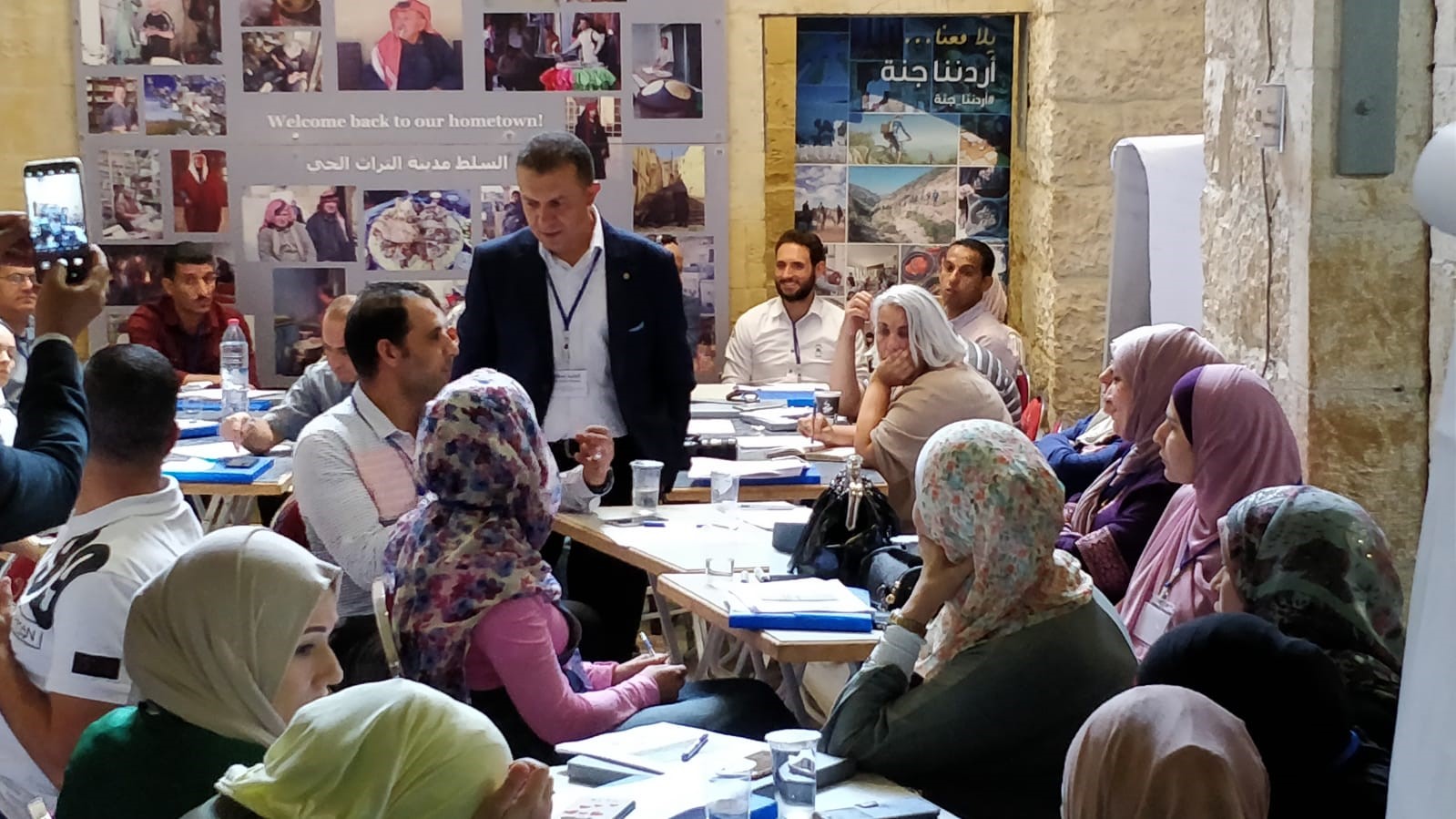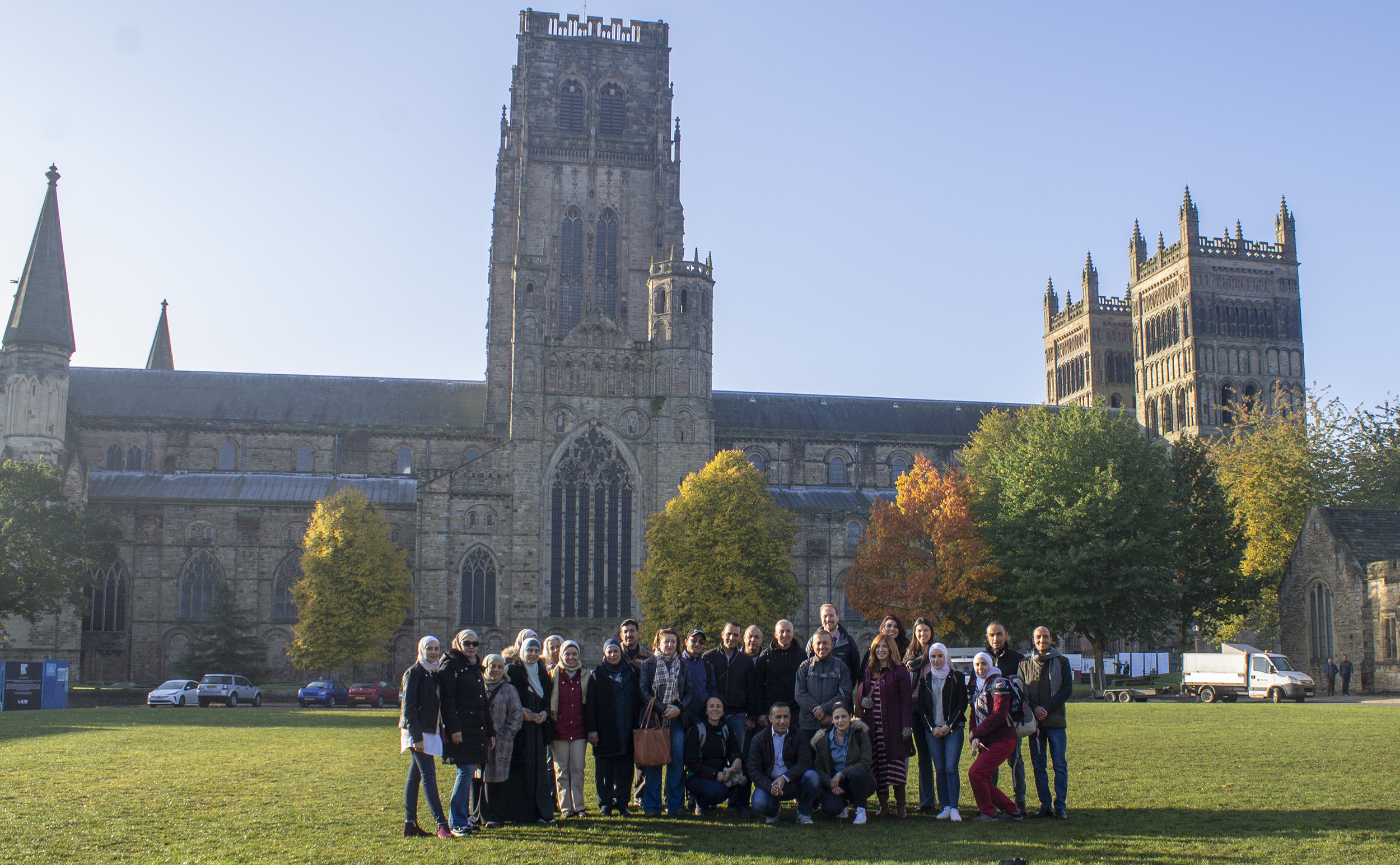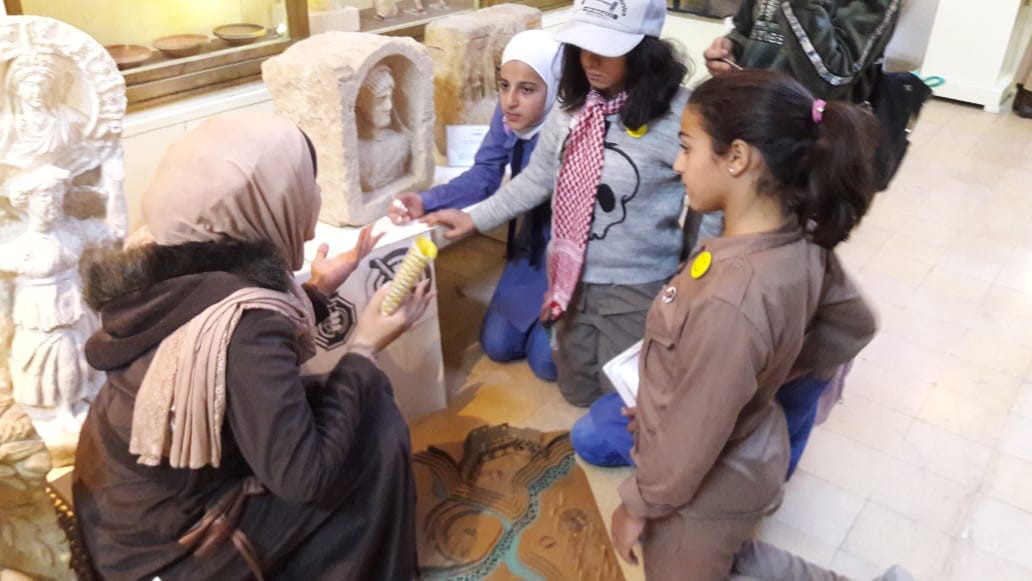Multicultural Amman: Engaging Jordan's Youth
Learning from Multicultural Amman:
Engaging Jordan's Youth
AHRC/Newton Khalidi funded project/ Feb 2019 - Jan 2021
This project was shortlisted for the 2020 Newton Prize and is an affiliated project of the Council for British Research in the Levant (CBRL).

Image above: Training session led by Jihad Kafafi at Salt Historical Museum.
Project Summary
Communities and especially the younger generation in Jordan are insufficiently engaged with their cultural heritage, both in formal education and at touristic heritage sites and museums, which do much for the Jordanian economy but little for its social development. Our project is designed to tackle this challenge, by working with and training museum staff, teachers and university lecturers and students to take advantage of the rich educational resources of Jordanian museums, and to consequently create better opportunities for young people to value Jordan's rich past.
Some key principles underpin our mission: undertaking our research in a rigorous, critical and ethical manner; working with the past for the benefit of present-day and future generations of Jordanians; celebrating the cultural heritage of Jordan's diverse communities; highlighting the educational value of museums and their collections; identifying, sharing and adapting best professional practice for the Jordanian museum and education sectors; creating and working in new partnerships that connect not only some of the best scholars and heritage professionals in Jordan and the UK, but also museums, schools and universities, for mutual benefit; and persuading influential policy makers that, by adopting these transformative principles, museums and their users can make a positive and lasting difference to Jordan's economy, culture and society.
Despite over 40 years of academic and professional research and debate over community engagement in heritage globally, we still need to understand much more about the Jordanian museum situation, including the professional and social barriers to fully exploiting their educational potential. We also need to find out – by systematically asking and listening to people in the heritage and education sectors - what developmental changes might work best in the Jordanian context. We are certain that high quality training of our collaborating museum staff and educators will make a difference. But we also want to experiment as a team with new ways of teaching and learning in museums, to figure out what approaches work best, both for teachers and for young learners. Ultimately, we want to pass on what we have learnt to other stakeholders, ranging from decision makers in Jordan to scholars and museum professionals globally.
Project Aims
- To identify good practice for engaging young people in learning about their multicultural pasts through Jordanian museums, and good practice in creating and sustaining successful working partnerships between museums, schools and universities.
- To develop and deliver a tailor-made museum education training programme and a platform for the exchange of ideas and practicesfor the benefit of Jordanian museum staff, school teachers and university lecturers on the use of museums and their collections to engage young people with their cultural heritage, and on working in professional partnerships for mutual benefit.
- To develop and implement a set of educational activities and events (including the application of digital technologies to cultural heritage), led by museum staff in collaboration with school teachers and university lecturers and students, intended to engage Jordanian young people with museums and with their cultural heritage.
- To evaluate these activities and events and to use the results to create and share resources and guidelineson how to make effective use of museums and heritage to engage young people in learning about their multicultural past.
- To use the project's outcomes to advocate to policy makers the benefits of museums and heritage for community engagement and education, and the value of professional partnerships to support such engagement within the museum and education sectors.
Project Publications
Multicultural Amman: Engaging Young People in Museum Learning
Badran et al. (2023) Engaging Young People in Museum Learning, Amman: Department of Antiquities of Jordan
Badran, A., S. Abu-Khafajah, M. E. Ronza, R. Skeates, R. Wilkinson and F.
Marii. 2023. ‘Collaboration and Multivocality in Heritage and Museum
Practice: Lessons from Jordan’. In Living Communities and Their Archaeologies in the Middle East, edited by R. Bonnie, M. Lorenzon and S. Thomas,
pp–pp. Helsinki: Helsinki University Press. DOI: https://doi.org/10.33134/
HUP-18-7
Project Partners
Durham University - Department of Archaeology
- Prof Robin Skeates (UK PI)
- Dr Arwa Badran (PDRA)
- Mr Ross Wilkinson (Co-I)/ Durham University Museums
Hashemite University - Department of Architecture Engineering
- Dr Shatha Abu Khafajah (Jordan PI)
Department of Antiquities of Jordan
- Mrs Lena Bakkar(Co-I)
- Mrs Arwa Massadeh (Co-I)
The University of Jordan - School of Archaeology and Tourism
- Dr Fatma Marii/ (Co-I)
Sela for Training and Protection of Cultural Heritage
- Eng. Maria Elena Ronza (Co-I) Facebook page
The Jordan Museum
- Mr. Mohammad Al-Qaisi(Co-I)
- Mr. Jihad Kafafi (Co-I)
- Falah Al-Sharaiaah (Co-I)
Expert
- Ms. Rasha Dababneh/ Children’s author and museum Learning specialist
Committee
- Prof. Zeidan Kafafi - Yarmouk University
- Dr Munther Jamhawi - Jordan University of Science and Technology

Image above: Project members from Jordan and Durham visit the Durham World Heritage site.

Image above: Discussion between Hashemite University student and pupils from Balqis Primary School about a statue of Tyche in the Amman Citadel Museum


/prod01/channel_4/things-to-do/media/things-to-do/learn/Learn-Banner-Image-2000X887-2-2000X443.jpg)